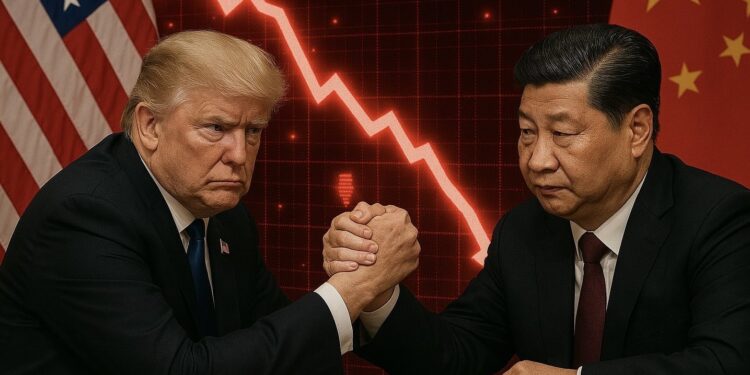Trump and Xi to Hold High-Stakes Trade Talks on Friday
Washington/Beijing — In a move that could significantly impact the global economy, U.S. President Donald Trump and Chinese President Xi Jinping are scheduled to hold trade talks this Friday, amid growing international concern over escalating tensions between the world’s two largest economies.
The meeting, which will take place on the sidelines of a major international summit, is expected to address long-standing issues surrounding tariffs, intellectual property rights, technology transfer, and the widening U.S.-China trade deficit. Both nations have been engaged in a trade dispute since 2018, marked by tit-for-tat tariffs that have unsettled financial markets, disrupted global supply chains, and dampened investor confidence.
Global Stakes
Economists and analysts worldwide are closely monitoring the outcome of the talks. A resolution—or even meaningful progress—could stabilize global markets and offer relief to businesses and consumers affected by the ongoing trade war. Conversely, a breakdown in negotiations may lead to the imposition of further tariffs, increasing the risk of a global economic slowdown.
“This meeting represents a crucial inflection point,” said Dr. Emily Chen, a senior fellow at the Center for Strategic and International Studies (CSIS). “While both leaders face domestic pressures, they also recognize the broader economic consequences of continued hostilities.”
U.S. Demands and Expectations
The Trump administration has emphasized the need for structural reforms within China, particularly in areas related to forced technology transfers and state subsidies to domestic industries. Officials in Washington are also pushing for a more balanced trade relationship, citing a $350 billion annual trade deficit with China as unsustainable.
Speaking to reporters ahead of the meeting, President Trump said, “We want a fair deal for American workers and businesses. China has benefited from our open markets for too long without reciprocity.”
China’s Position
Beijing has consistently denied engaging in unfair trade practices and has called for mutual respect and equality in negotiations. President Xi Jinping, in a recent speech, underscored China’s willingness to engage in “constructive dialogue,” but warned against foreign interference in its domestic affairs.
Chinese state media have called for a “rational and pragmatic” approach, framing the trade dispute as part of a broader geopolitical rivalry.
Market Reaction
Global financial markets responded cautiously to the news of the upcoming talks. Asian and European indices edged higher on Tuesday, while Wall Street saw a modest rally in early trading. Investors appear hopeful but remain wary of potential surprises.
“Markets are betting on a handshake rather than a breakthrough,” noted Rebecca Lyons, chief market strategist at Global Insights Ltd. “The hope is for a truce, not a treaty.”
A Long Road Ahead
Even if Friday’s talks yield positive headlines, experts caution that a comprehensive trade deal is unlikely in the near term. Key issues—such as technology decoupling, cybersecurity, and geopolitical competition in Asia—go far beyond trade and could take years to resolve.
Still, any signs of cooperation between Washington and Beijing would be welcomed by the international community, especially at a time when the global economic recovery from the pandemic remains fragile.
Conclusion
As President Trump and President Xi prepare to meet, the world watches with anticipation. Whether the talks lead to concrete action or simply a temporary pause in hostilities, the outcome will reverberate far beyond the negotiating table—affecting everything from global trade flows to diplomatic alignments in the 21st century.




































